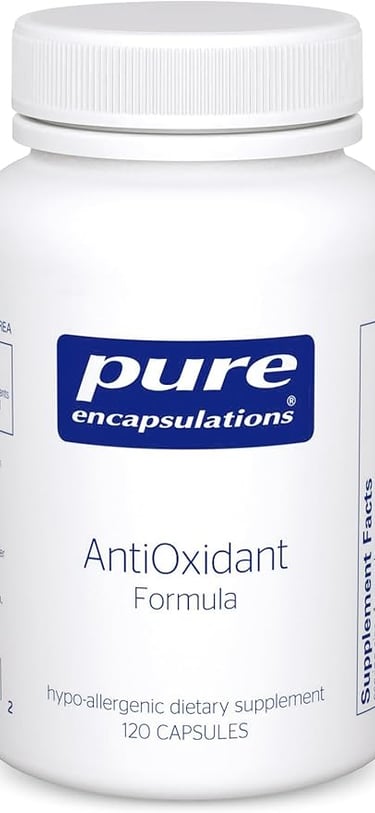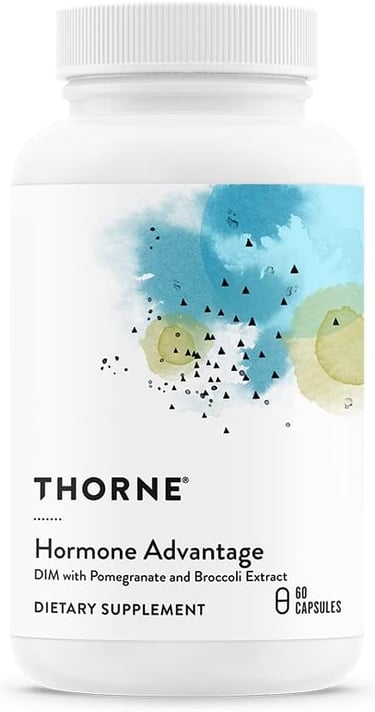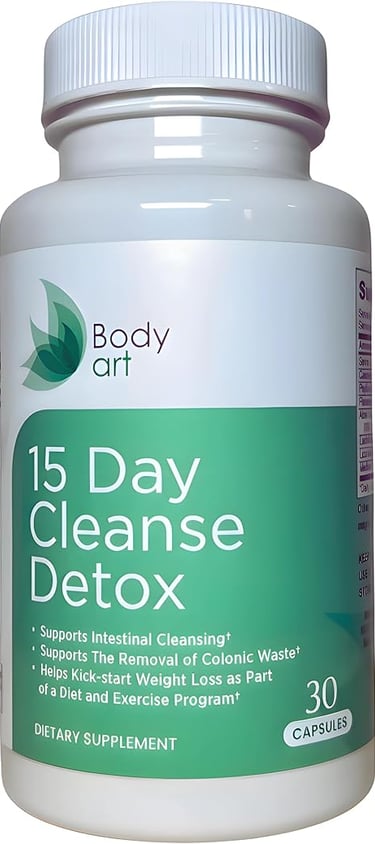Fat Gain: There Is ALWAYS an Underlying Factor
Disclaimer: The content on this site is for educational purposes only and not intended as medical advice. Always consult with a healthcare professional before starting any new diet, supplement, or exercise regimen.
In the realm of health and weight management, the conversation often revolves around diet, exercise, and willpower. Yet, for many people—especially those over 50—these surface-level solutions fail to address the real challenge: there is always an underlying factor behind fat gain. From metabolic imbalances to chronic inflammation, uncovering and addressing these root causes is essential for sustainable weight management and overall health.
Understanding the Role of Fat in the Body
Fat has been vilified for decades, but in reality, it plays a crucial role in human survival. Fat stores energy, regulates body temperature, and cushions vital organs. More importantly, fat often serves as a protective mechanism when the body faces internal threats such as toxins, hormonal imbalances, or inflammation. Instead of blaming fat, it’s time to look deeper into why the body might be holding onto it.
The Hidden Culprits Behind Fat Gain
Inflammation: The Common Denominator
Inflammation is the body’s natural defense mechanism against injury or infection. However, chronic inflammation, often triggered by poor diet, environmental toxins, or stress, can wreak havoc on the body. Fat cells actively participate in the inflammatory process, producing cytokines that contribute to a vicious cycle of weight gain and metabolic dysfunction.
Hormonal Imbalances
As we age, hormonal changes can significantly impact fat storage. For example:
Insulin Resistance: Excessive sugar and refined carbohydrates can cause the body to become less responsive to insulin, leading to increased fat storage, particularly around the abdomen.
Cortisol: Chronic stress elevates cortisol levels, prompting the body to store fat as a survival mechanism.
Thyroid Dysfunction: An underactive thyroid slows metabolism, making it harder to burn calories and easier to gain weight.
The Role of Toxins
Toxins are ubiquitous in modern life—found in food, water, air, and everyday products. These chemicals, known as endocrine disruptors, can interfere with the body’s hormonal signaling. The body often stores toxins in fat cells to minimize their impact on vital organs, which can result in stubborn weight gain.
Microbiome Imbalances
The gut microbiome, home to trillions of microorganisms, plays a pivotal role in digestion, immunity, and even weight regulation. A disrupted microbiome—caused by poor diet, antibiotics, or stress—can lead to issues like insulin resistance, inflammation, and cravings for unhealthy foods.
The Protective Role of Fat Gain
Fat gain is not inherently bad; it’s the body’s way of adapting to challenges. For example:
Inflammation Sequestration: Fat tissues can absorb and contain inflammatory byproducts, acting as a buffer to protect other parts of the body.
Toxin Storage: By isolating toxins in fat cells, the body minimizes their impact on critical systems.
Energy Reserve: During times of stress or nutritional deprivation, stored fat becomes a vital energy source.
Understanding these protective roles can shift the narrative from “fighting fat” to working with the body to address underlying issues.
Why Traditional Diets Fail
Most diets focus solely on calorie restriction or macronutrient manipulation, ignoring the root causes of fat gain. While these approaches might lead to short-term weight loss, they fail to address:
Chronic inflammation
Hormonal imbalances
Toxin accumulation
Gut microbiome health
Without tackling these factors, the weight often returns—sometimes with additional health complications.
Actionable Steps to Address Underlying Factors
Combat Inflammation with an Anti-Inflammatory Diet
Focus on whole, unprocessed foods.
Include omega-3-rich foods like salmon, walnuts, and flaxseeds.
Avoid inflammatory triggers such as sugar, refined grains, and trans fats. Remember, there is a difference between trans fats, and healthy fats. Also, we must keep emphasizing that ingesting good fats, even if considered saturated, are GOOD fats. And ingestion of good fats does not result in body fats, regardless of what the pundits may say. In fact, why don't I give a summary of Good and bad fats here:
Quick Summary of Good vs. Trans Fats
Type Sources Health Impact
Good Fats
Olive oil, fatty fish, nuts, seeds, avocadosReduce inflammation, support heart health, boost brain function.
Trans Fats
Packaged snacks, fried foods, margarine Increase LDL cholesterol, promote inflammation, raise risk of chronic diseases.
Support Hormonal Balance
Limit sugar and refined carbs to improve insulin sensitivity.
Manage stress through mindfulness, meditation, or gentle exercise like yoga.
Consider testing for hormonal imbalances with a healthcare provider.
Detoxify Safely
Drink plenty of water to support kidney function.
Incorporate natural detoxifiers like cruciferous vegetables (broccoli, kale, cauliflower).
Avoid exposure to known toxins in food (e.g., pesticides, additives) and household products.
Optimize Gut Health
Eat a diverse range of fiber-rich foods to feed beneficial gut bacteria.
Consider fermented foods like whole milk 5% fat yogurt, kefir, and sauerkraut.
Limit antibiotic use unless medically necessary.
Move Mindfully
Engage in activities that reduce stress and inflammation, such as walking, swimming, or tai chi, chair yoga,
Focus on building muscle mass, which supports metabolism and insulin sensitivity.
The Over-50 Advantage
For seasoned citizens, addressing underlying factors is even more crucial. Aging brings unique challenges such as reduced muscle mass (sarcopenia), slower metabolism, and increased susceptibility to inflammation, lung and organ failures other than heart (sarcoidosis).
However, it also brings wisdom and the ability to approach health with a holistic perspective.
Simple, sustainable changes—like walking daily, prioritizing sleep, and embracing nutrient-dense foods (specifically not a diet plan, but explicitly an eating plan like the Mediterranean plan, which is actually a living plan because it is sustainable—can have a profound impact. The key is consistency and patience.
Affiliate Recommendations for Your Health Journey
To help you take actionable steps, we’ve researched high-quality products that align with the strategies above. All recommended products are vetted for safety and efficacy, backed by scientific studies, and come with satisfaction guarantees. Explore our curated list for:
Anti-inflammatory supplements
Hormone-balancing aids
Gut health enhancers
Safe detox tools
Note: We may earn a commission if you purchase through these links, but it doesn’t affect your cost. Your support helps fund ongoing research for The Fat Gain Project.
A Holistic Perspective on Weight and Health
Fat gain is not the enemy—it’s a symptom and sometimes even a protective ally. By focusing on the underlying factors, you can work with your body, not against it, to achieve better health. From combating inflammation to balancing hormones and optimizing gut health, addressing these root causes empowers you to make lasting changes.
At The Fat Gain Project, we’re committed to providing practical, science-backed insights to help you navigate your health journey. Together, we can uncover the hidden factors behind fat gain and create a roadmap to wellness.
Start your journey today by exploring more articles, resources, and recommendations at TheFatGainProject.com. Let’s redefine health, one step at a time.
Inflammation as a Driver of Weight Gain
Hotamisligil, G.S. (2006). Inflammatory pathways and insulin action. International Journal of Obesity.
Calder, P.C. (2020). Immunometabolism and inflammation in obesity. Journal of Clinical Endocrinology & Metabolism.
Hormonal Imbalances and Fat Storage
Shulman, G.I. (2000). Cellular mechanisms of insulin resistance. Journal of Clinical Investigation.
Rosmond, R. (2005). Role of stress in the pathogenesis of the metabolic syndrome. Psychoneuroendocrinology.
Toxins and Endocrine Disruption
Diamanti-Kandarakis, E., et al. (2009). Endocrine-disrupting chemicals: an Endocrine Society scientific statement. Endocrine Reviews.
Heindel, J.J. (2003). Endocrine disruptors and fat development. Current Opinion in Endocrinology, Diabetes, and Obesity.
Gut Microbiome and Obesity
Turnbaugh, P.J., et al. (2006). An obesity-associated gut microbiome with increased capacity for energy harvest. Nature.
Le Chatelier, E., et al. (2013). Richness of human gut microbiome correlates with metabolic markers. Nature.
Fat as a Protective Mechanism
Rosen, E.D., & Spiegelman, B.M. (2014). What we talk about when we talk about fat. Cell.
Frühbeck, G., et al. (2001). The adipose tissue as a source of inflammation. Nutrition Research Reviews.
Challenges of Traditional Diets
Hall, K.D., et al. (2011). Quantification of the effect of energy imbalance on bodyweight. The Lancet.
Mann, T., et al. (2007). Medicare's search for effective obesity treatments: Diets are not the answer. American Psychologist.
Actionable Steps
Calder, P.C., et al. (2017). Health benefits of omega-3 fatty acids: A comprehensive review. British Journal of Nutrition.
St-Onge, M.P., et al. (2016). Effects of dietary fiber and gut microbiota on obesity and metabolism. American Journal of Clinical Nutrition.
The Over-50 Advantage
Roubenoff, R. (2003). Sarcopenia and its implications for the elderly. European Journal of Clinical Nutrition.
Chernoff, R. (2004). Protein and older adults. Journal of the American College of Nutrition.
Affiliate Recommendations and Transparency
Federal Trade Commission (2023). Complying with the FTC’s Endorsement Guides. Retrieved from https://www.ftc.gov.
Davidson, M.H., et al. (2007). Commercial weight-loss programs: Effectiveness and considerations. American Journal of Clinical Nutrition.
Holistic Perspective on Health
Egger, G., & Dixon, J. (2009). Beyond obesity and lifestyle: a review of 21st-century chronic disease determinants. Biomedicine & Pharmacotherapy.
Kahan, S., & Manson, J.E. (2019). Obesity treatment, beyond the guidelines. JAMA.
These references provide additional context and validation for the insights shared in the article.
This is the Supplement Company that Dr. Mark Hyman recommends. Just click on the image.
This one surprises me, In the past you would need an RX to get it. Just Click on the image.
Yup! talked about this one, before, Great Microbiome support
This one works well. Constipation sometimes presents, that's why the Senna. But, do drink a Lot of Water. Just click on the image for more info.
Scroll down to end of the article to see recommendations:
Silver Sage Insights
Understanding fat's protective role for your health.
1-425-533-1952
© 2024. All rights reserved.
Pages contain affiliate links. If you click through and make a purchase, the "Project" may earn a small commission at no extra cost to you. Your support helps fund the ongoing research efforts of this project.
Thank you!
To Learn More? Click here







